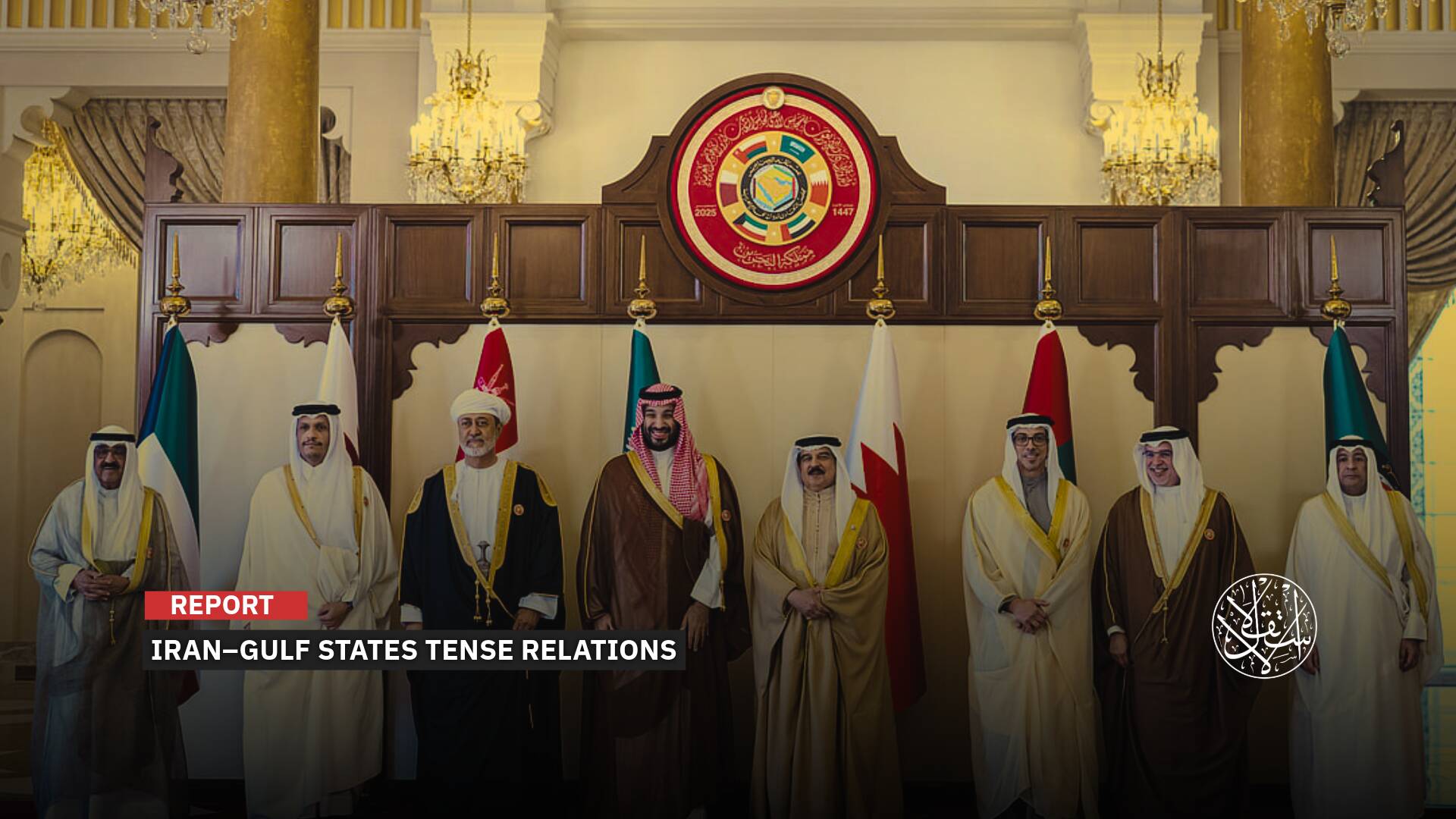Over 100 Days Under Siege: How the Rafah Border Closure Has Deepened Gaza’s Humanitarian Crisis

With the onset of the Israeli aggression, the Rafah border crossing has come under intense scrutiny.
Palestinian cancer patient Maher Kamel Bulbul urgently needs medical evacuation from Gaza for life-saving treatment, but the closure of the Rafah crossing has made this nearly impossible. After exhausting all treatment options within Gaza, Bulbul’s family shared his story on social media as the region faces a devastating Israeli assault that has left most hospitals inoperable.
A month ago, Bulbul underwent a tracheostomy, resulting in the severing of his vocal cords and leaving him unable to speak. His condition deteriorates daily as a growing cancerous mass threatens his life.
Bulbul is one of thousands of patients facing life-threatening conditions due to the Israeli destruction of hospitals and the closure of the Rafah crossing, which has severely restricted access to essential medical care.
Catastrophic Consequences
It has been over 100 days since the Israeli military seized the Rafah border crossing, exacerbating an already dire humanitarian crisis.
On May 6, 2024, “Israel” launched a military operation in Rafah, disregarding international warnings about the impact on displaced residents. By the following day, Israeli forces had taken control of the border crossing with Egypt.
On August 14, 2024, Gaza's Government Media Office reported that over 1,000 children, injured individuals, and patients have died due to the closure of the Rafah crossing over the past 100 days.
“The closure of the [Rafah] crossing by Israel for 100 days has resulted in the deaths of over 1,000 children, patients, and injured individuals, deepening the humanitarian catastrophe on all fronts,” Ismail al-Thawabteh, Director of Gaza Media Office, stated in a press conference.
“Israel has prevented 25,000 patients and injured individuals from traveling for treatment, representing 80.5% of the total cases.”
al-Thawabteh warned that "the lives of other patients and the injured are at risk due to the inhumane and unethical policies of the Israeli Occupation preventing them from receiving necessary treatment."
Regarding aid entry, al-Thawabteh said that “Israel” has continued to block medical supplies, health delegations, and various forms of assistance for 100 days, severely worsening the health and humanitarian situation.
After the incursion, Israeli forces demolished and burned the crossing’s buildings, flattening the area and leaving it completely inoperable, according to al-Thawabteh
Since the Israeli aggression on Gaza began in October 2023, over 92,000 Palestinians have been injured, with many suffering amputations due to targeted attacks.
Palestinians are sharing numerous stories on social media of patients and wounded individuals who have died due to their inability to travel for treatment.
On June 6, 2024, Gaza's Ministry of Health reported that only about 4,895 individuals, or 19.5% of the total patients and injured, were able to leave for medical treatment.

Since “Israel” took control of the Palestinian side of the Rafah border crossing on May 7, 2024, coinciding with “a military operation” in the city, no patients have been able to leave Gaza through this crossing, except for a few children.
On August 15, a small number of children with cancer and chronic illnesses were able to travel for treatment through the Kerem Shalom border crossing.
On the same day, Gaza's Ministry of Health reported that 10,000 cancer patients are in life-threatening condition due to the ongoing closure of the Rafah crossing. This has blocked their access to treatment abroad following the collapse of Gaza's health system caused by continuous Israeli bombardment.
According to the latest statistics from Gaza's Government Media Office, the Israeli bombing and fuel shortages have rendered 34 hospitals, 68 health centers, and 162 health institutions inoperable.
Shared Siege
The suffering, which intensified following the closure of the crossing, began even before the Israeli invasion, starting with the onset of the war on Gaza.
The Rafah border crossing with Egypt, Gaza’s only outlet to the outside world, has been under intense scrutiny since the beginning of the Israeli aggression.
Managed by Egyptian authorities, the Rafah crossing is the only one not under direct Israeli control. However, “Israel” still exerts significant influence over its operations and the movement of people through it, as evidenced by events following October 7, 2023.
The Egyptian-Israeli blockade on the Gaza Strip tightened after Hamas’s Operation al-Aqsa Flood on October 7.
While Egypt has repeatedly closed the crossing since Hamas took control of Gaza in 2007, the level of restriction during the current Israeli aggression is unprecedented.
The events of October 7 revealed the extent of Israeli control over the Egyptian-Palestinian Rafah crossing and the impact of Abdel Fattah el-Sisi’s regime on Palestinians seeking to travel through it.
Since the launch of Hamas’s operation on October 7, the Egyptian government has closed this crossing to both people and goods.
Former Foreign Minister Sameh Shoukry and Health Minister Khaled Abdel Ghaffar separately stated that Cairo did not receive Israeli permission to allow aid or medical evacuations.

During a 7-day humanitarian truce, the Sisi regime temporarily opened the Rafah crossing for the entry of foreign nationals and goods, subject to Israeli approval and inspection.
It was notable that President Joe Biden repeatedly announced the opening of the Rafah crossing, prompting many to question Egypt’s role, with some describing Sisi as merely a "gatekeeper."
Before the Israeli invasion, Israeli aircraft had bombed the Rafah crossing gate multiple times, damaging it from both sides, without any formal condemnation from Egypt.
Patients and injured individuals faced significant difficulties in leaving for treatment, while those who could pay between $5,000 and $10,000 were able to travel, facilitated by the Egyptian authorities.
These funds were paid to Ya Hala, a company run by Ibrahim al-Arjani, a Sinai businessman closely associated with Sisi.
Before the complete closure, Dr. Munir al-Borsh, Director General of the Palestinian Health Ministry, revealed that a few injured people were allowed to exit for treatment in Egypt.
He told Al-Jazeera that many of those who were approved for exit died before receiving permission to pass through Rafah.
Al-Borsh pointed out that only 400 out of 40,000 injured individuals were allowed to leave, questioning, "Do you want us all to die so that you feel satisfied?"
Negotiation Battle
The Rafah crossing has become a central issue in the ongoing negotiations, with its future now included in ceasefire discussions.
In recent weeks, Israeli Prime Minister Benjamin Netanyahu has demanded that Israeli forces remain in the Philadelphi Corridor along the Egypt-Gaza border as part of any ceasefire and prisoner exchange agreement. Netanyahu argues that Hamas has used this corridor for years to "smuggle weapons" and "enhance its military capabilities."
Egypt, however, firmly opposes any Israeli presence in the Philadelphi Corridor and denies Netanyahu's claims.
Hamas insists on a complete Israeli withdrawal from Gaza, including the Rafah crossing and the Philadelphi Corridor, as a prerequisite for reaching a ceasefire and prisoner exchange agreement.
With Egypt and Hamas holding their ground, “Israel” appears to be turning to the Palestinian Authority to consider managing the Rafah crossing, despite its previous stance of avoiding any role in Gaza following the Israeli war.

On August 10, 2024, the Israeli Public Broadcasting Corporation reported that key negotiations are underway between Egypt and the Palestinian Authority, which involve the latter taking control of the crossing.
Recently, a meeting took place between Hussein al-Sheikh, head of the Palestinian Authority's Civil Affairs Department and a close ally of President Mahmoud Abbas, and the Egyptian representative in Ramallah. According to the same Israeli source, al-Sheikh and the Egyptian representative in Ramallah, “drew up the plan with great and strong support from Egypt and the United States.”
The goal of the Egyptian plan is for Palestinian Authority representatives to formally enter Gaza, without any ambiguous or unidentified roles. The plan aims to make the Rafah crossing the first step in the Palestinian Authority's return to Gaza.
In mid-July 2024, Axios reported a secret meeting in Tel Aviv between the U.S., “Israel,” and the Palestinian Authority about the crossing. The meeting, which involved Brett McGurk, President Biden's senior Middle East advisor, discussed reopening the Crossing as part of a larger exchange and ceasefire deal.
The report noted that “Israel,” during the meeting, reaffirmed Prime Minister Netanyahu's opposition to any official Palestinian Authority involvement in the Crossing.
Arab media later reported that the Palestinian Authority rejected an Israeli proposal to open the Crossing with civilian management not linked to Palestinian security forces. This proposal included restrictions on displaying the Palestinian flag and Israeli insistence on maintaining control over the Philadelphi Corridor for inspections and interrogations.
The Palestinian Authority continues to demand a complete Israeli withdrawal from the Crossing, according to Axios.










